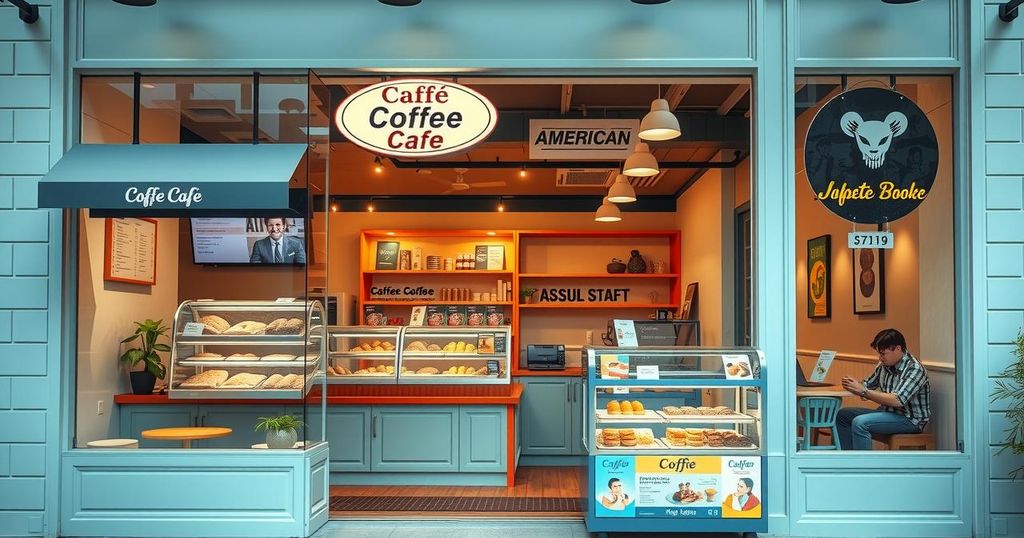Despite its austere reputation, Saudi Arabia embraces American culture, notably brands like Dunkin’ Donuts, as part of its social fabric. This relationship is historically rooted and thrives amid economic diversification plans like Vision 2030. Many Saudis enjoy American dining experiences, blending traditional and modern lifestyles.
Saudi Arabia, often seen as a center of religious conservatism, surprisingly harbors a deep affinity for American culture. This love for brands like Dunkin’ Donuts isn’t just a fleeting trend; it’s rooted in a longstanding cultural bond fostered by a strategic alliance revolving around oil and security. Even with historical tensions in view, this connection has endured, especially with Saudi Arabia’s ambitious Vision 2030 economic diversification plan fueling the presence of American corporations.
In a recent conversation, Fahd, a 31-year-old mechanical engineer, reflected on his return to Riyadh after spending nearly a decade in Tennessee. He spoke warmly of the comfort he found at Dunkin’ Donuts, where he maintained a daily routine that helped him feel at home. “When I came here, thank God, the same café and same order were here too,” he shared. The availability of familiar brands feels almost like a slice of American life transported to the Middle East.
Surprisingly, despite its reputation for strict Islamic practices, Saudi Arabia is plastered with signs of Western influence. There are over 600 Dunkin’ Donuts outlets in the kingdom. Those chains serve roughly 250,000 people daily out of a total population of about 35 million. Chain restaurants like Buffalo Wild Wings and Starbucks thrive amidst the traditional landscape, and American SUVs dominate the streets, showcasing an undeniable cultural blend.
The US-Saudi relationship dates back to World War II when King Abdulaziz shook hands with President Franklin Roosevelt. The decades that followed have seen the US provide military protection to the Kingdom, creating a mutually beneficial partnership. The Saudi riyal’s peg to the US dollar further cements this relationship, with American leaders frequently visiting, including Donald Trump’s recent trip.
Of course, the relationship hasn’t been without bumps. Historical events such as the oil embargo in the ’70s and international incidents involving Saudi nationals have strained ties. However, for many Saudis, their affection for American food, movies, and lifestyles persists even amid controversies like the regional boycott tied to the Israel-Hamas situation.
Dalal Abdulaziz, a 28-year-old resident, highlighted the cultural synthesis, saying, “The one thing we never disagree on is going to an American restaurant — especially Buffalo Wild Wings.” Khaled Salman Al-Dosari, a 21-year-old student, noted that finding an American brand on the street is almost a given. “American companies’ products have become an inseparable part of our day,” he remarked.
The presence of American brands isn’t just a matter of nostalgia; it’s tied to economic growth as well. Saudi Arabia’s Vision 2030 has opened the gates wider for foreign investment. While live music and cinemas saw a ban for years, they’ve now been embraced, alongside more mainstream entertainment like MMA and professional wrestling events.
Andrew Leber, a political science expert at Tulane University, mentioned that many might be surprised by the pervasiveness of US brands in Saudi Arabia. He also pointed out some geographic and cultural parallels, with Riyadh’s architecture evoking a resemblance to places like Dallas. “Texas is close to Riyadh in terms of climate, and its people are conservative like us,” Fahd noted.
For the myriad Americans working in Saudi Arabia, this cultural blend often provides a comforting connection to home. Joshua Dunning, an American business developer, said that encountering familiar American products always brings back memories of home. “It’s always a nice reminder, seeing those places and products here in Saudi,” he explained. The intertwined lifestyles paint an unexpected picture of cultural exchange between two vastly different countries.
Saudi Arabia’s engagement with American brands indicates a deeper cultural connection that defies stereotypes. The longstanding partnership between the US and Saudi Arabia, rooted in economic motives and strategic alliances, facilitates this cultural exchange. As Saudi Arabia continues to diversify its economy through Vision 2030, the embrace of American culture in everyday life is set to grow, creating a unique blend of identity for its residents.
Original Source: www.malaymail.com






